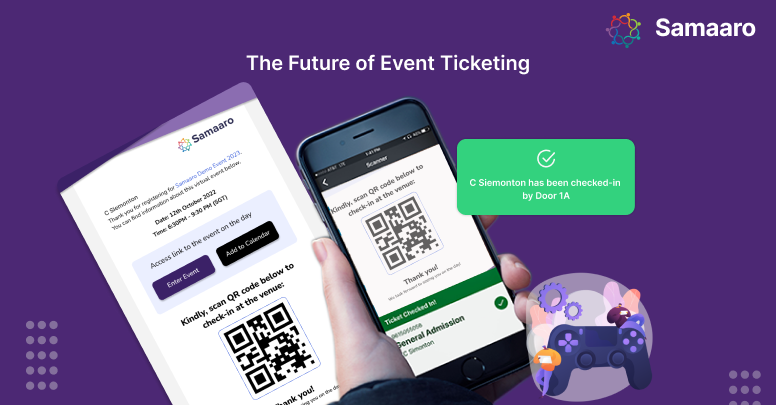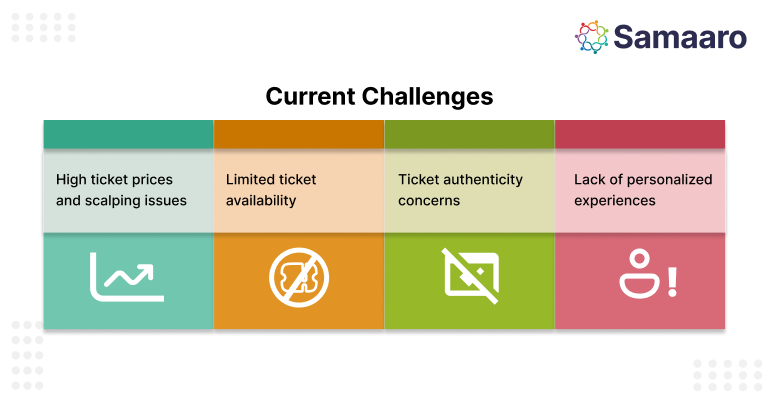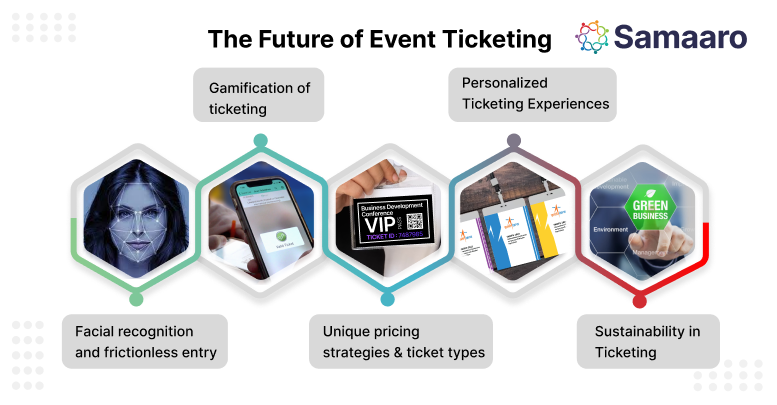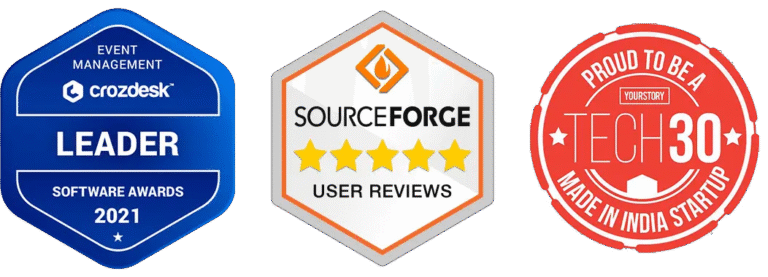Samaaro + Your CRM: Zero Integration Fee for Annual Sign-Ups Until 30 June, 2025
- 00Days
- 00Hrs
- 00Min

The Future of Event Ticketing Part 1 is upon us, and it is going to change the future of engagement with events forever. In this article, we are going to talk about the past, present and future of event ticketing challenges!
Event ticketing is a large part of our events experience, whether it is a concert, sporting event, theatre in the park, or conference. Event ticketing can be simplified to just the selling of tickets to events, but meaningfully tickets grant limited access to countless entertainment experiences from music events, sporting events, cultural experiences, and conferences. Sometimes it is easily forgotten, but ticket purchasing is an unexceptional activity, but it is significant in how we spend our free time.
Ticketing is a time and distance journey. From the time it was only a physical ticket (a physical representation of excitement and anticipation) to now with companies and entire ecosystems for events registration and ticketing systems like Samaaro, it is a great example of human ingenuity! Just a story of convenience and accessibility, and that we finally possess the means needed to quench our thirst for entertainment.

The Price of Tickets and Ticket Scalpers
One major problem that exists in this industry is the ever-increasing price of tickets to sell out events, event tickets are expensive for multiple reasons and part of that issue is resale of tickets (scalping) at extremely inflated prices above face value. Not only is this frustrating, but for many fans, the immediacy of purchasing tickets can also be financially crippling.
Limited Ticket Purchase Opportunities
It is not uncommon for certain events to sell out literally in seconds. The level of ticketing for many events does not allow young people to be able to attend events and youth admiring the theatre. The tight supply makes skimming even more of an issue.
Concerns with Ticket Authenticity
Fake tickets keep catching victims – this creates distrust in the ticketing process.
Lack of Personalized Experiences
Most ticketing experiences are impersonal and lack the ability to make recommendations or offer alternatives specific to each user.

Facial recognition will change the entire event ticketing industry. Facilitation of ticketed entry into events will be quick and secure.
Here is how:
Biometric Data: Ticket purchasers will provide their facial biometric data to the event organizers either while buying a ticket, or through an event app. The biometric data is encrypted and stored in a highly secure location, ensuring privacy and compliance with the data protection act.
Frictionless Entry: On the day of the event, all the purchaser has to do is walk up and go in. The facial biometrics will be scanned by a camera, identifying their face and their tickets will be verified in seconds, all without ever coming across any paper ticket or mobile QR code process.
Increased Security: Facial recognition will reduce ticket fraud and ticket scalping, helping to keep everyone more secure. During the onboarding process, only the person with the correct facial biometrics and a valid ticket will be allowed in, as a result limiting the exposure of all in attendance.
Efficiency: It is an extremely efficient process, that minimizes wait time and bottleneck at the entry point. This can be a huge advantage at large events where it can be extremely inconvenient to wait in long lines.
Gamification of ticketing turns ticket purchase into an interactive experience. Here is what it could look like:
Ticket Challenges: Event organizers can create ticket challenges and games. For instance, fans may be able to earn points, badges, or virtual prizes for buying an advance ticket or for going to multiple events during a season.
Exclusive prizes: If events are gamified, it is likely exclusive prizes will be available such backstage access, asking an artist questions, or access to a VIP lounge. These prizes could be earned from simply playing games or loyalty programs in association with ticket purchase.
In the future of event ticketing, one price for all customers will be a thing of the past. Instead, event organizers will use dynamic pricing and provide multiple ticket types to accommodate more budgets and preferences:
Dynamic pricing: An event’s ticket prices could be based upon any number of factors, such as demand, the time of purchase, seat location, etc. The increasing Growth of early-bird climbs, last-minute discounts, and off-peak pricing will make it easier for groups of attendees to attend events.
Many tickets types: Event organizers will be able to provide various ticket types, each with a particular experience and experience. For example, if you were to attend a music concert, they could provide different levels such as standard, VIP, and Platinum. Each type would provide their own benefits like seating, access to exclusive areas, bundles of merchandise, etc.
Bundled Experiences: Events organizers will bundle ticket sales with a variety of different experiences (pre-show dinners, merchandise, transportation, etc.) and provide attendees will a seamless event package.
AI opaque algorithms will play a central role in building personalized ticketing experiences:
Recommendations: Algorithms will analyse user data regarding previous events attended, musical tastes, and location, then notify users of relevant events to increase chances of attendance. Attendees will also be provided with seating recommendations from their preferences. For example, a user interested in a low-key experience may be directed to sit further from the stage but still in a section with the better sound.
Customization of Add-Ons: Systems can propose event add-ons, such as VIP packages, merchandise, and in-event experiences that match a user’s taste and profile.
The future events ticketing will incorporate sustainability aspirations:
E-Tickets: Traditional paper tickets will be eliminated from the process, and gone mobile permits and e-tickets now relieves a paper count and carbon emissions in the entire process of ticket printing and distribution.
Environmentally Sustainable Venues: The venues of events will also provide budget rates with energy-efficient lighting, renewable energy sources, limit the amount of plastic, and waste recycling programs which will appeal to environmentally conscious attendees.
More Transportation Options: Ticketing platforms will create partnerships with green transportation services avenues where attendees are provided with schedules for public transportation or carpooling options for respective events to assist in a lower carbon footprint for events.

The future of event ticketing is reinventing how we access and experience events, and once fully implemented by the industry and society at a large, it will eliminate most barriers, including: scalping, fraud; and advance access, personalization, and improved accessibility.
Everything mentioned in this article will become toggled to enhance the customer experience, embracing real-time technology changes and the rapid advancements in the artificial intelligence ecosystem that option outside real-time technologies. For those who loved attending sporting events or music performances, the future of event ticketing promises to expand and enhance your experience, making it increasingly memorable, accessible, and enjoyable!

Built for modern marketing teams, Samaaro’s AI-powered event-tech platform helps you run events more efficiently, reduce manual work, engage attendees, capture qualified leads and gain real-time visibility into your events’ performance.
Location


© 2026 — Samaaro. All Rights Reserved.